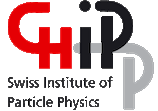Speaker
Description
This talk will summarize a method based on machine learning to play the devil's advocate and investigate the impact of unknown systematic effects in a quantitative way. This method proceeds by reversing the measurement process and using the physics results to interpret systematic effects under the Standard Model hypothesis. We explore this idea in arXiv:2303.15956 by considering the hypothetical possibility that the efficiency to reconstruct a signal is mismodelled in the simulation. We further discuss the extension to this method on which we are currently working on. We explore a combination of reinforcement learning and generative models to automatically find background decay modes which are potentially problematic for an analysis. We believe that this method has the potential to significantly streamline the analysis procedure in a complex experiment.
